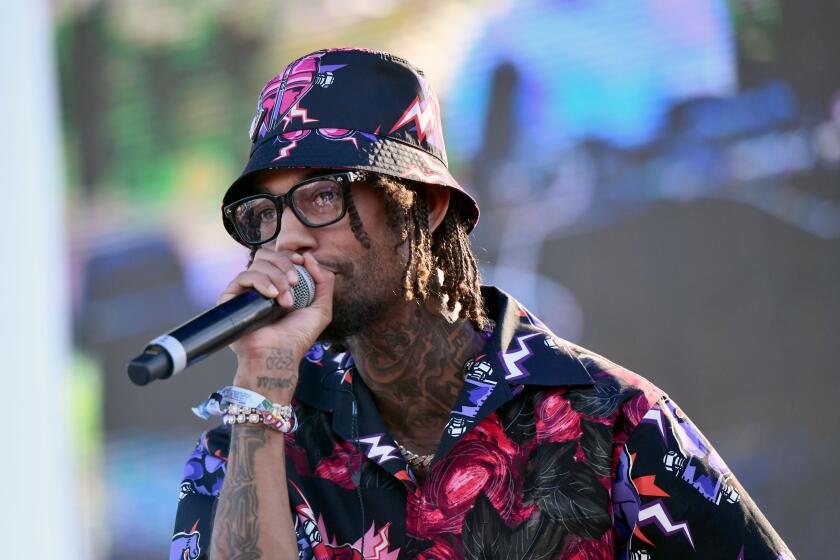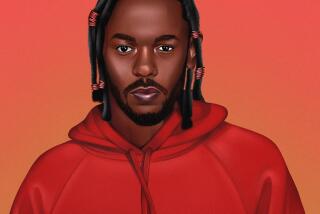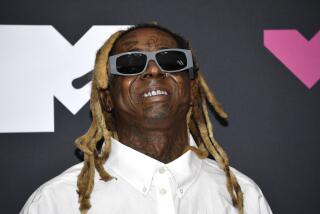At arena homecoming, Kendrick Lamar gives the people what they want, on his terms
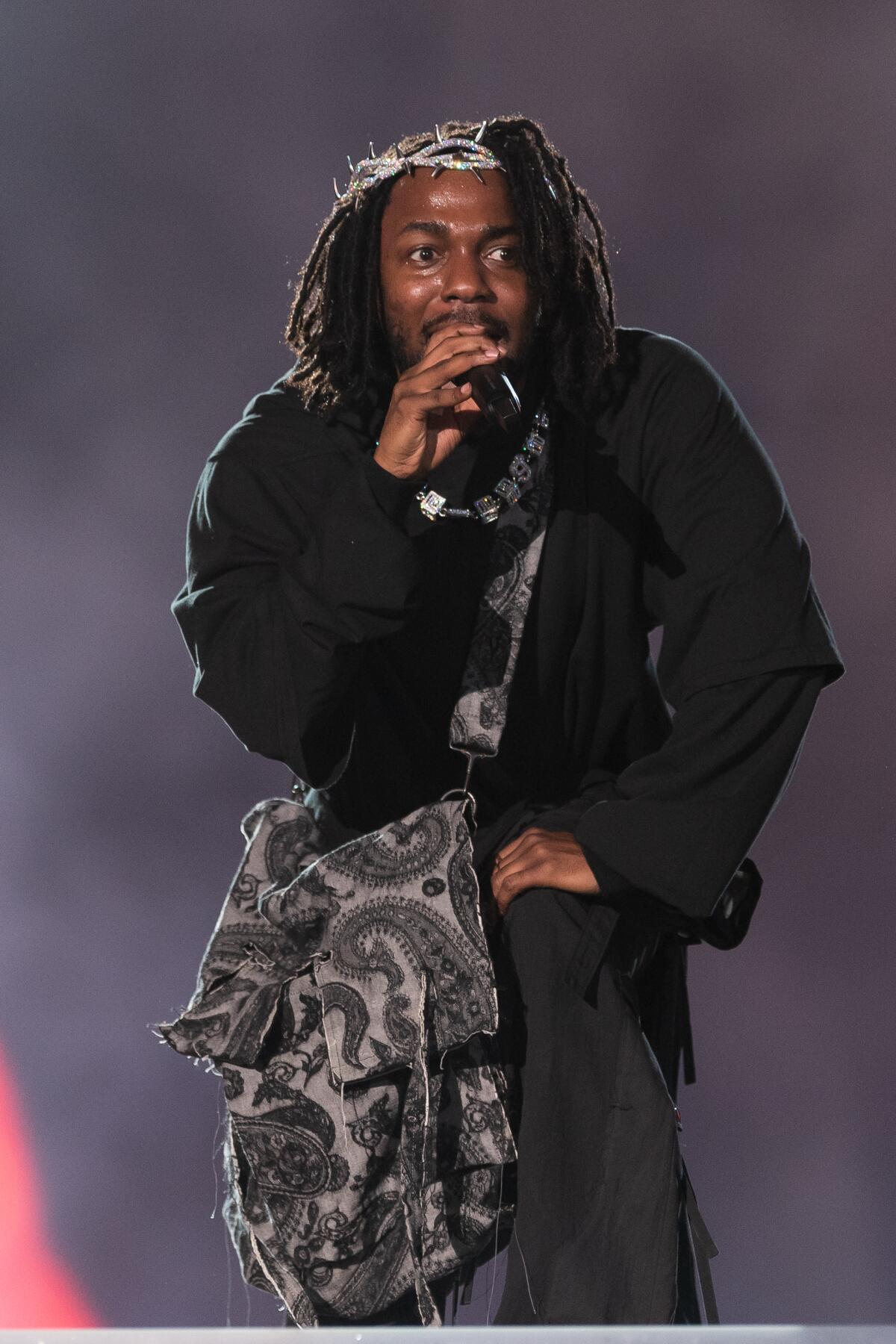
“WELCOME HOME KENDRICK LAMAR,” read a city-bus-size banner, each letter three or four feet high, hung Wednesday night outside Crypto.com Arena, where the 35-year-old Compton-born rapper had arrived for the first of four concerts to wrap the North American leg of his latest world tour.
Inside the packed building, the warmth of his reception was even more pronounced as a set of filmy white curtains lifted to reveal Lamar seated at a piano, a ventriloquist’s dummy (!) propped beside him. The atypical prop let you know he had something conceptual in store. Yet the place erupted as though he’d come out firing a T-shirt cannon.
How to explore the burdens of adulation in a setting designed to glorify? That’s the essential tension of Lamar’s road show, which follows this year’s “Mr. Morale & the Big Steppers,” a dense but finely detailed double LP about his unsuitability for the heroic voice-of-a-generation role he’s been cast in — and sometimes has seemed eager to fulfill — since he broke out with Dr. Dre’s blessing a decade ago.
In songs that juggle wildly varied beats and textures, Lamar confesses to a sex addiction that drove him to cheat on his longtime romantic partner; he raps about giving in to materialism against his better judgment and about struggling not to replicate his father’s parenting mistakes. But he also makes clear that moral leadership isn’t necessarily the type a superstar musician should have to provide.
“I can’t please everybody,” he shrugs in “Crown”; “I choose me, I’m sorry,” he declares in “Mirror.”
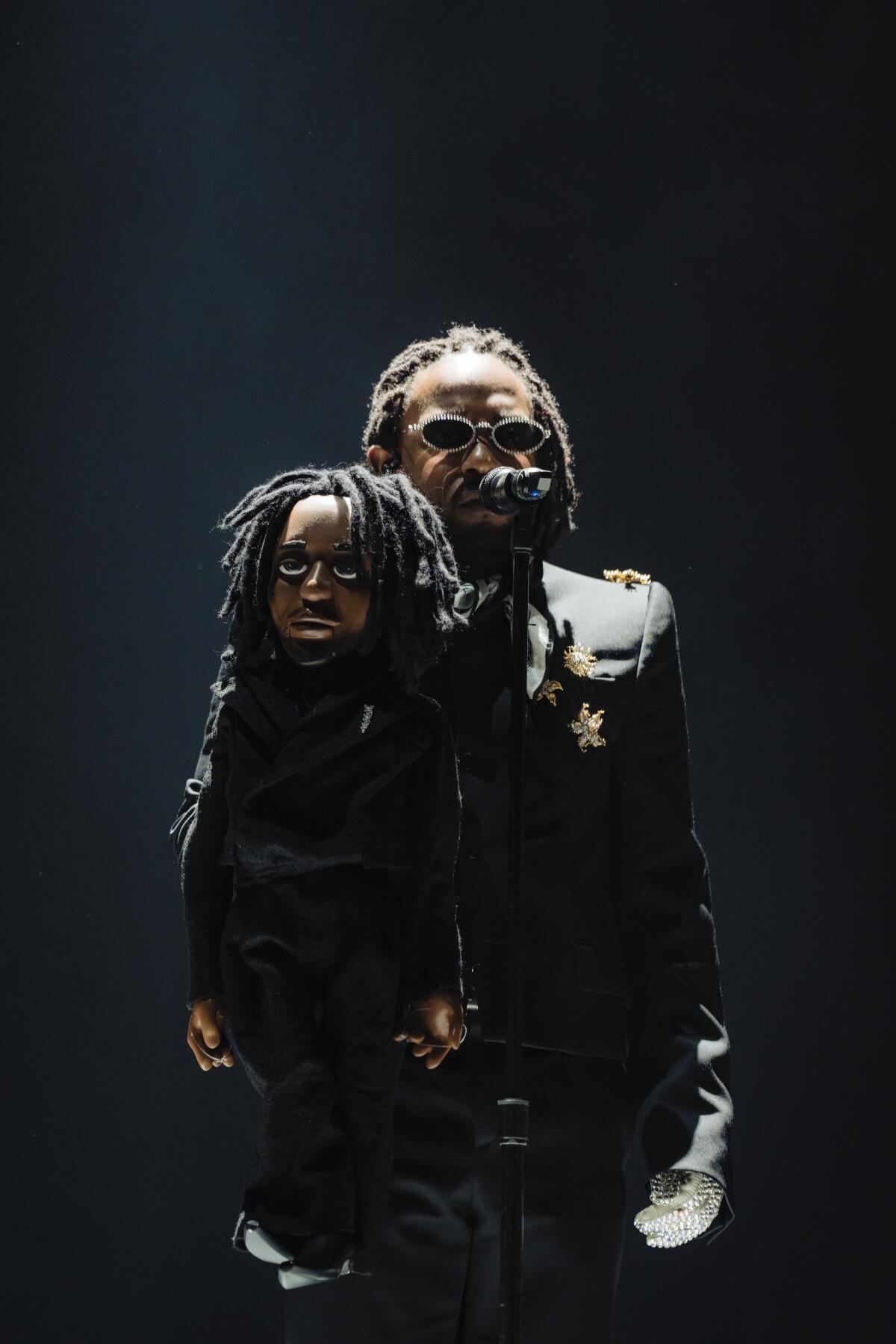
To an extent you could say Lamar has gotten what he wanted: Though it’s almost certain this fall to be showered with Grammy nominations — including a likely fifth straight nod for album of the year — the knotty “Mr. Morale” hasn’t spun off hit singles to rival those from 2017’s “Damn.” or his 2018 soundtrack for “Black Panther.” At the moment, neither Billboard’s Hot 100 nor the Spotify U.S. Top 50 contains a single track by Lamar amid inescapable tunes by the likes of Drake, Future and Post Malone. You could make the case that, not unlike Beyoncé before him (at least until she returned to No. 1 this summer with “Break My Soul”), Lamar has entered his prestige period as a deep thinker more attuned to cultural impact than to commercial clout.
Except, of course, to the thousands of fans at Crypto.com who hardly seemed to have been dissuaded — by statistics or by the rapper himself — from regarding Lamar as a champion. More than once, a chant of his name went up worshipfully in the crowd, which spanned generations and racial backgrounds.
Philadelphia rapper PnB Rock was fatally shot at a Roscoe’s Chicken & Waffles on Tuesday during a robbery. The hip-hop world paid tribute.
A keen observer of pop traditions (even if he largely abstains from the hurly-burly of social media), Lamar understands the need for his different selves to coexist in an arena show. Indeed, his flashy outfit — a white jacket emblazoned with the word Compton and a single sparkly glove à la Michael Jackson — suggested he’s found a way to embed any residual hunger for fame within the framework of his ideas about home and Black history.
Over nearly two hours at Crypto.com, he alternated meditative new songs such as “United in Grief,” “Father Time” and “Count Me Out” with rowdy old bangers like “Humble” and “DNA.” At one point he strung together tantalizing snippets of “King Kunta,” “Loyalty,” “Swimming Pools (Drank)” and “Bitch, Don’t Kill My Vibe” — a tease, perhaps, but an effective one that served to demonstrate the intellectual ambition of even his most radio-friendly songs.
Lamar also knew that the crispness of his rapping, which on record is essential to the complexity of his storytelling, was sure to be lost in the boomy acoustics of a basketball arena. So often he let the audience carry large portions of his old tunes. And he offered plenty of stimulation beyond his vocals: A team of male and female dancers performed intricate choreography around him during much of the “Mr. Morale” material, and the stage set featured two large cubes, one with transparent walls, in which Lamar acted out an oblique narrative about introspection involving that dummy, four guys in hazmat suits and the disembodied voice of a therapist reportedly played by Helen Mirren. (His musical accompaniment sounded live — “Savior” got a funky psychedelic-soul outro not heard on the album — though no band was visible.)
Most gratifying of all might have been Lamar’s own dancing — a series of subtle little glide-and-shimmy moves that made him look like somebody’s cool uncle turning up right on time to the family cookout. Which is maybe precisely how he thought of himself on Wednesday. Not a hero. Not an idol. Just a guy who’s learned how best to carry himself.
More to Read
The biggest entertainment stories
Get our big stories about Hollywood, film, television, music, arts, culture and more right in your inbox as soon as they publish.
You may occasionally receive promotional content from the Los Angeles Times.
